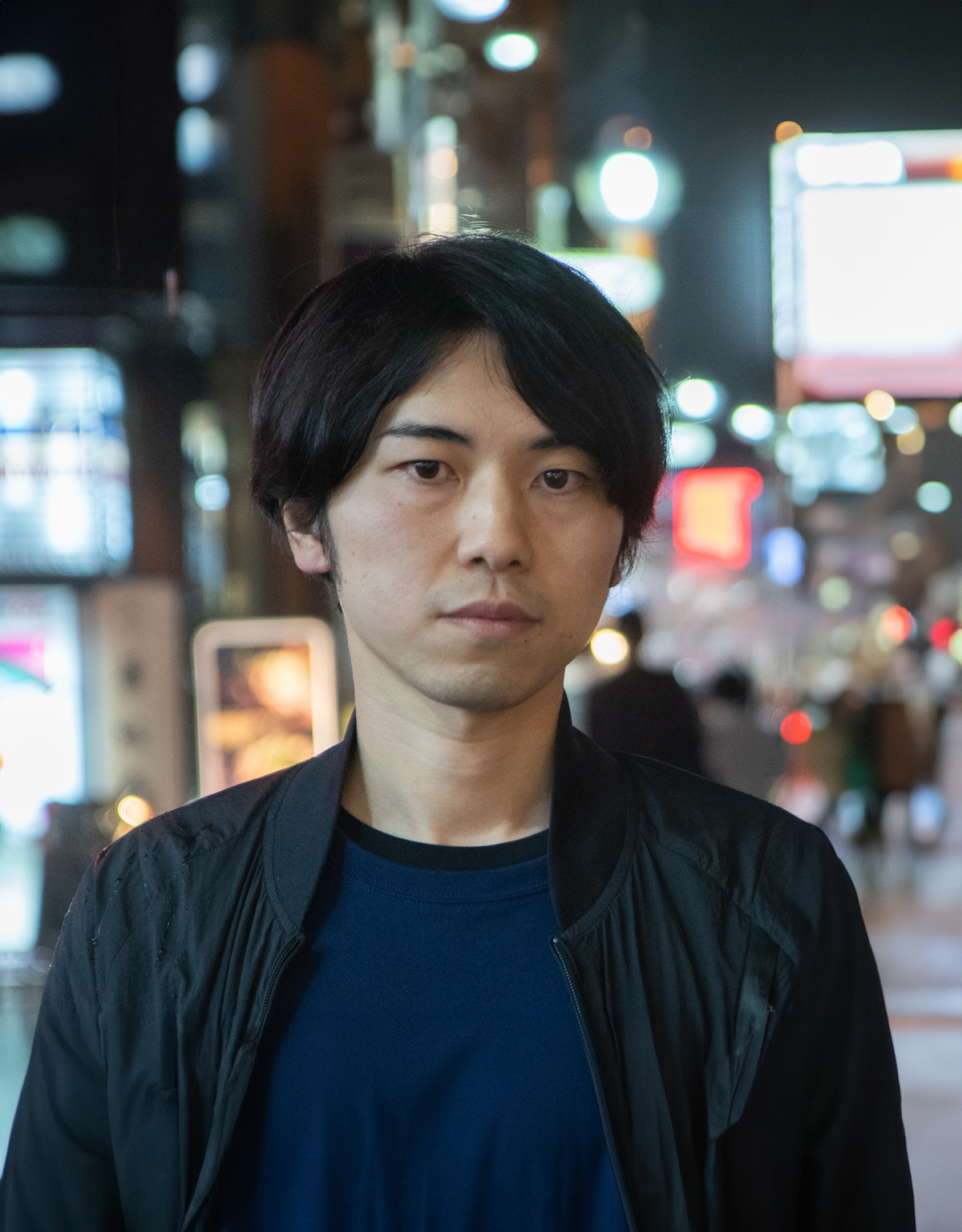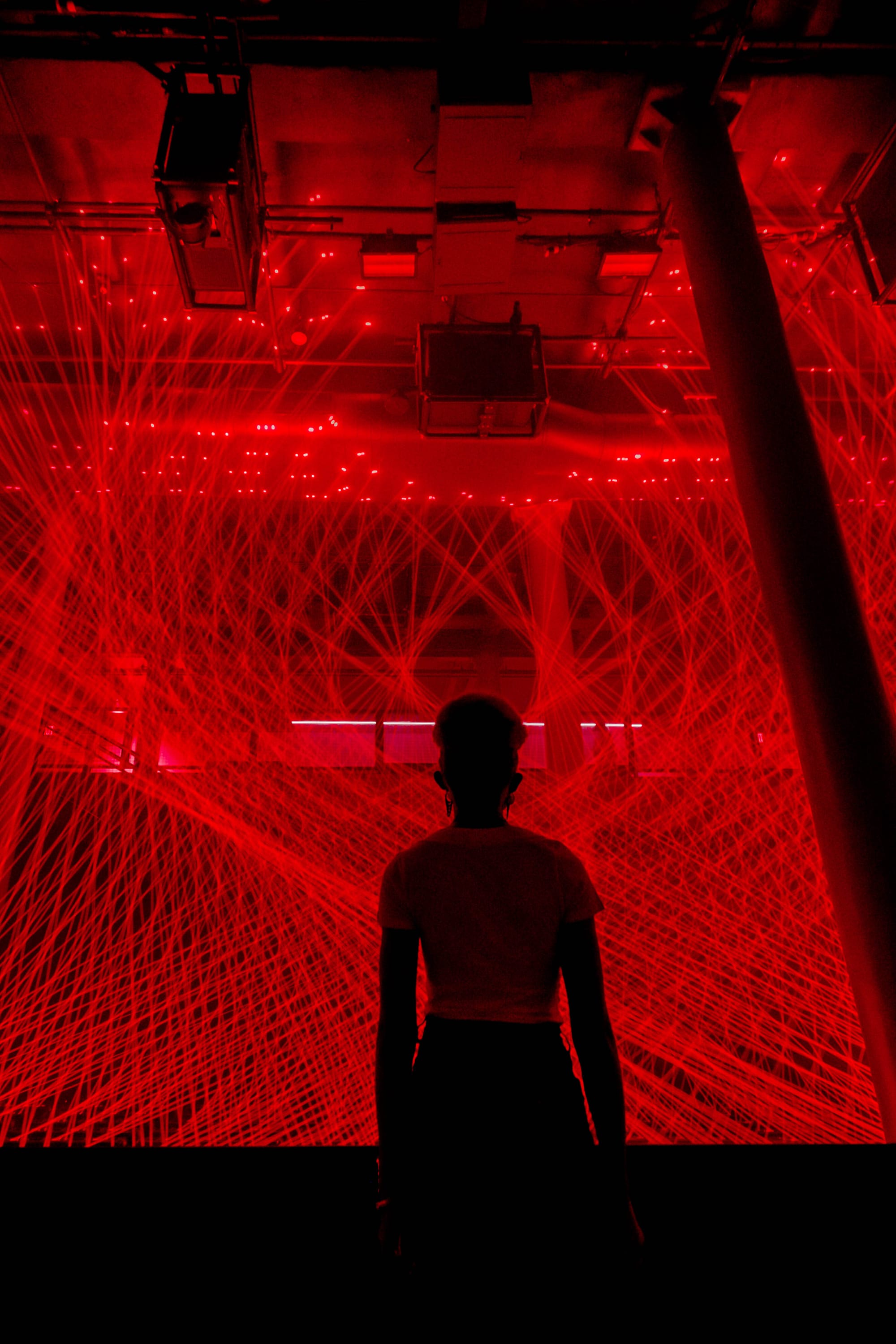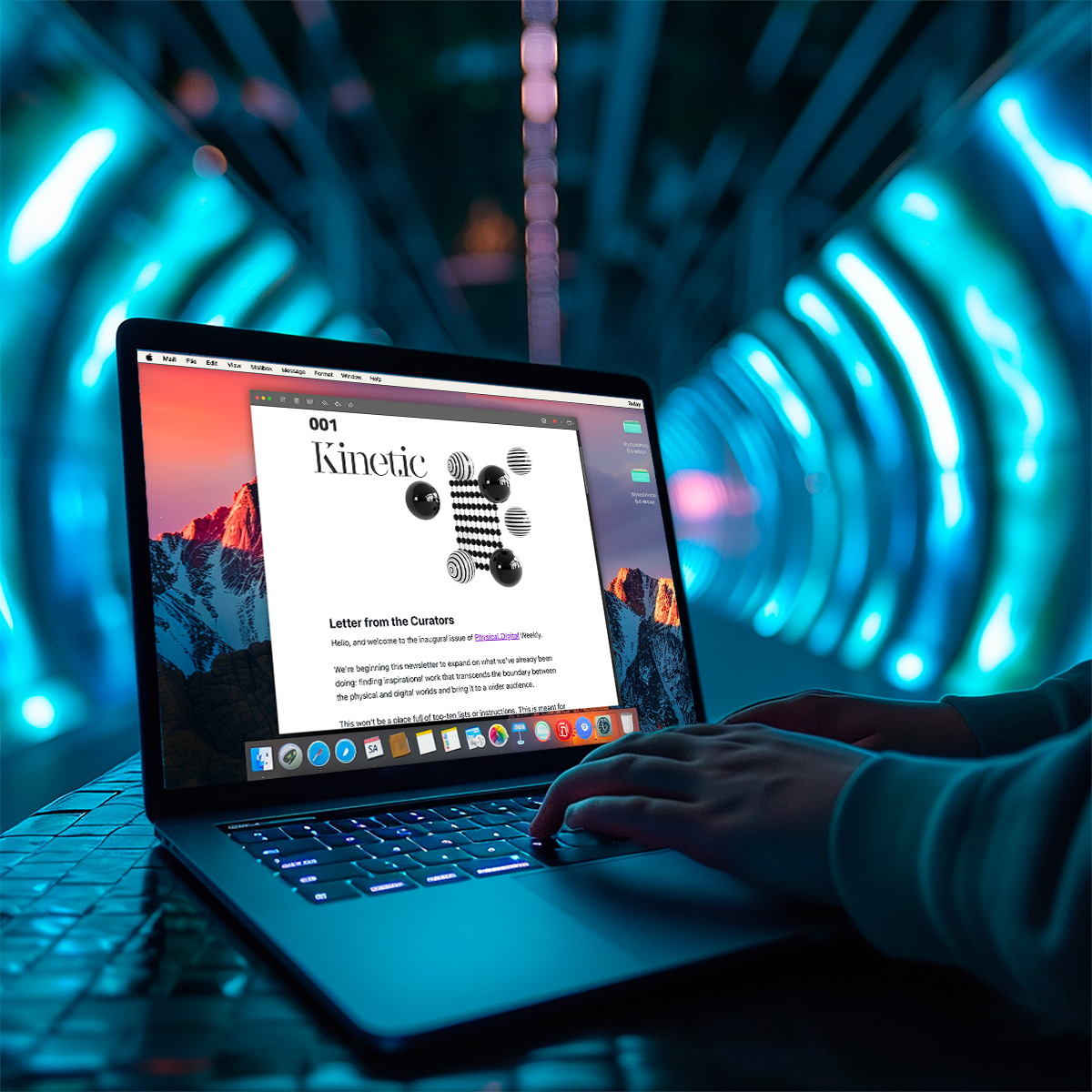Shohei Fujimoto

A conversation with
Shohei Fujimoto
The Japanese-born artist sits with us to discuss visualizing the unknown and the power of physical installations.

You’ve previously talked about light that the human eye can’t perceive and the opportunity that is presented in that, as an artist. Can you describe your process for visually interpreting something invisible?
I'm interested in the "ability to share images", which is a human ability. I think that seeing something, imagining something, and sharing it is a way to enrich not only yourself but also other people.
I believe that visually interpreting the unseen parallels the act of crafting something entirely new (visualization), prompting others to contemplate its essence. When it comes to creation, there isn't a fixed method. Acting on a spontaneous impulse or shaping a mental image without the constraints of language or predefined structure often yields something intangible, serving as a catalyst for this interpretation. This fascinates me.

Your work impressively bends the audience members’ understanding of how laser lights should behave, i.e. they take on curving, organic forms. Are there recent technology breakthroughs that allow you to express your ideas in new ways? Are there technology barriers you are facing that are preventing you from expressing your ideas?
I want to understand the structure of the work as much as possible myself and expand the system
Lately, I've been relying on ChatGPT4 as my go-to assistant. It's been helping me out with suggestions on programming topics I've never tackled before and offering ideas to optimize my code. I always question each proposed suggestion to evaluate whether or not to use it.
As an introvert, I find it a bit awkward to keep bombarding people with questions, so having ChatGPT to bounce ideas off of is much more convenient. Though I must admit, if I sense a distinct personality in ChatGPT's responses in the future, it might affect how I view the advice.
Since I'm currently producing works by myself, there are actually a number of technical barriers. I want to understand the structure of the work as much as possible myself and expand the system (like my own universe), so although it takes time, I move forward step by step, keeping true to my artistic vision.

How does experimentation play a role in your creative process?
When I dive into something new, I like to keep it open-ended, without a strict goal in mind. It's like I'm so focused on picturing the idea that words almost become secondary. If there's any purpose, it's simply enjoying the process. I'm all about experimenting with unfamiliar technology and bringing to life those spontaneous ideas that pop into my head.
Even when experiments don't go as planned, they're never a waste. There's always something to learn from them, even if it's just what not to do next time. I always start by asking myself if the experiment is something fresh and exciting for me. It's cool when I can tell if it's cutting-edge, but I'm also okay with doing some research beforehand, checking out similar stuff.
But what really sticks with me is the experience itself, the things I notice, the feelings I get. That's where the real learning happens. It's like each experiment adds another layer to my knowledge base, helping me stay on the edge of what's possible.
Even when experiments don't go as planned, they're never a waste.
As I move from the experimental phase to sharing with others, it's like stepping into a different zone. I try to imagine the kind of feedback I might get once my work goes live. It's like mentally preparing for that moment of connection with my audience.
This is something I always tell myself, but I think it's important to take on each challenge one by one. It's a series of training and unknowns. I always remember that good things happen slowly.
How does a person’s personal context change the way they perceive your work?
The places in which people were born and the environments in which they grew up are different, but the works I create are nonverbal and open to interpretation. I create the perceptual experience, but I leave it up to the audiences to determine the feeling they get from the actual experience.
For me, an artwork is similar to the atmosphere of a park in the city, where anyone can enter and feel free to do whatever they want there. A unique experience.
When I exhibited my mirror installation (power of one #surface) in Montreal, someone stood in front of it and stared at it for three hours. I heard this from a staff member, so if I have a chance, I'd like to talk to this person. Reach out if it’s you!

You’ve described your work as “capturing” data—why does this phrase, versus “create” seem more appropriate?
One big thing for me is giving data its own space to roam. It's almost like it's alive, capable of throwing us curveballs we never saw coming.This kind of setup helps me see things from the audience's point of view. It's like it levels the playing field, letting me approach my work with fresh eyes.
On my work computer, a lot of the setups I've got going are all about data that's constantly in motion. Even though I'm the one setting it up, I still see the data as its own entity, doing its thing. That's why I prefer to think of it as "capturing" rather than just creating.

What do you see as the future of physical digital convergence?
I don't see the allure of physical, in person experiences fading away anytime soon.
When developing an installation, I create 3D simulations whenever possible to visualize the final result. This is cost efficient, and I always have an environment where I can try it out as many times as I like, no matter where in the world I am.
The future of physical digital convergence currently, seems to be leaning heavily towards the digital more than the physical at this stage, due to the ease and accessibility available to anyone to create 3D simulations. In fact, I often find myself questioning whether some of my concepts really need to exist in a physical space. I mean, sure, if it's going to be a massive production, it's going to require a ton of resources and equipment.
On the other hand, there's the sensory aspect to consider. Our senses are constantly soaking in information beyond just sight and sound. For instance, our skin reacts to light and heals itself. I reckon a 3D simulation alone can't quite replicate these holistic sensory experiences. Even if we manage to create a simulation that perfectly mirrors a phenomenon, there's still this innate human desire to physically experience things. So, for now, I don't see the allure of physical, in person experiences fading away anytime soon.




Intangible #form creates a physical object/notion in space using a laser optical axis that has no physical properties.
What else is inspiring you, outside of what people might expect?
You know what really sparks my creativity? It's diving into the idea of space, both in the physical world and in virtual realms. When I'm working, I see it as this exciting journey of visualizing potential information. It's like taking a basic shape and using it to accentuate the space around us, unlocking its hidden possibilities.
Just think about how we perceive space. We can remember it, sure, but never in complete detail. That's why we keep coming back to it, wanting to explore it again. Even if you revisit the same space, what you see and what you remember can be totally different. It's like our brains keep remixing the experience. This fascinates me.

